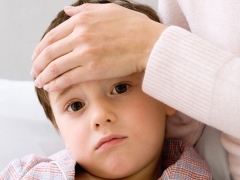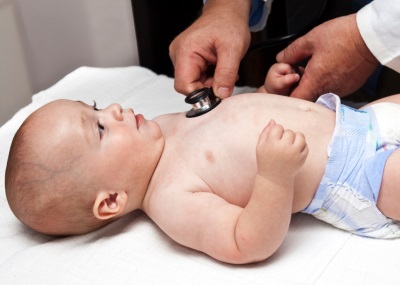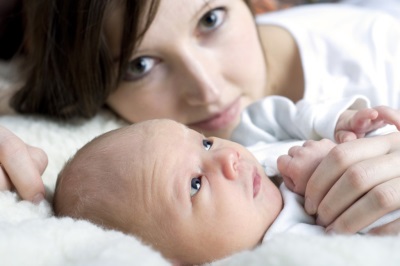Hypoglycemia in children
Hypoglycemic condition is called too low (less than 4 mmol / liter) level of glucose in the blood of a child. Is this condition in children normal or is it a sign of the disease? How to identify it and how to help children with hypoglycemia?
The reasons
In a newborn baby, the cause of the hypoglycemic state may be diabetes of the mother during pregnancy. During pregnancy, more glucose was delivered to the baby, which stimulated the production of more insulin in the infant's body. During childbirth, glucose ceases to enter the body of crumbs, and insulin, which has developed in the newborn, provokes a sharp drop in blood glucose levels. To prevent such hypoglycemia, you can control the blood sugar level of the expectant mother. If hypoglycemia has developed, the glucose solution is injected intravenously into the baby.
A sharp decrease in sugar in the body of a child can be provoked by excessive mental or physical exertion, as well as by skipping meals. Also, this condition can be caused by taking certain medications.
If we consider the disease, hypoglycemia is most often one of the symptoms type 1 diabetes in children, although it may occur in the second type of diabetes, which develops in adolescents. The onset of a sharp decrease in glucose in the bloodstream in such diseases contributes to eating disorders, improperly selected insulin dosage, the occurrence of concomitant diseases, intensive physical or mental work.
Other diseases that can lead to hypoglycemia include severe somatic pathologies, tumors that produce insulin, hormonal dysfunction (the pituitary and adrenal glands).
Symptoms
When hypoglycemia occurs in children such signs:
- Sweating;
- Nervousness;
- Shiver;
- Irritability;
- Complaints of severe hunger;
- Wobbly gait;
- Drowsiness;
- Fatigue;
- Dizziness;
- Confused speech;
- Apathy;
- Appearance of anxiety;
- Feeling of numbness and tingling in the limbs;
- Pale skin;
- Cardiopalmus;
- Nausea;
- Headache;
- Decreased concentration
Very young children with hypoglycemia begin to act up, or, conversely, become drowsy or lethargic. They can refuse food and even sweet.
Kinds
- The type of hypoglycemia in newborn babies is called gestational.
- Hypoglycemia that develops suddenly in children in the absence of diabetes is called reactive.
According to the severity of hypoglycemia is:
- easy (the child is able to eat something sweet and help himself with it);
- severe (requires injection of glucose and glucagon).
Hypoglycemia in diabetes
When a child diabetes, there is always a risk of hypoglycemia, which happens with an excess of insulin and a shortage of glucose in the blood. A child who often has bouts of falling blood sugar in insulin therapy should be shown to a doctor to change the treatment regimen.
Diagnostics
The detection of hypoglycemia focuses on the clinic and blood sugar testing.
A particular danger in attacks of glycemia is the loss of consciousness and the risk of developing coma. That is why being able to quickly diagnose such a condition is very important, especially if the child has diabetes.
Treatment
In most cases, in the hypoglycemic state, rapid improvement occurs after consuming carbohydrate foods, for example, candy (preferably without fat, because they slow down the absorption of sugar) or juice. You can also help your child with glucose drugs, especially if an attack of hypoglycemia caused a loss of consciousness. Next, the child must eat normally to stabilize the glucose level.
In severe cases, it is shown the introduction of glucose solution directly into the bloodstream of the child. Glucagon is also used in the treatment of hypoglycemia. It is a hormone that acts the opposite of insulin. His injection increases blood sugar levels.
Tips
If a child has diabetes and is treated with insulin, parents should prepare a set with glucagon and have it with you at all times. In addition, be sure to carry with them sweet foods that can quickly raise the level of glucose.
If the child goes to school, a set of glucagon and sweets should always be with him during the training, and teachers should be warned how to act with hypoglycemia.













